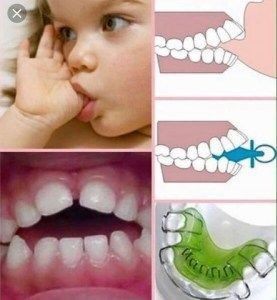+918048030932

This is your website preview.
Currently it only shows your basic business info. Start adding relevant business details such as description, images and products or services to gain your customers attention by using Boost 360 android app / iOS App / web portal.
dentist in porur multi speciality clinic in por...

dentist in porur multi speciality clinic in porur Thumb sucking is a common habit in young children, usually providing comfort or helping them feel secure. However, if the habit persists beyond early childhood (around age 4-5), it can lead to several effects, including: 1. Dental Issues Misaligned Teeth: Prolonged thumb sucking can push the upper front teeth outward and the lower teeth inward, potentially leading to overbite, underbite, or open bite issues. Palate Deformation: Thumb sucking can affect the shape of the palate (roof of the mouth), which may cause difficulty with proper alignment of teeth as they grow. Speech Impairments: Misaligned teeth or changes in the shape of the palate can lead to speech difficulties, such as lisping or difficulty pronouncing certain sounds. 2. Jaw and Facial Structure Changes Over time, the pressure exerted by the thumb on the teeth and jaw can lead to an altered jaw structure or an imbalanced facial appearance, which may require orthodontic treatment. 3. Skin Problems The constant moisture and pressure on the thumb can lead to chapped, cracked, or even calloused skin. In severe cases, it may lead to infection if the skin breaks. 4. Increased Risk of Germ Exposure Thumb sucking can introduce various germs from surfaces into the mouth, increasing the risk of infections, especially colds or gastrointestinal illnesses. 5. Speech and Language Development Persistent thumb sucking may contribute to delayed or impaired speech development. For instance, children might struggle with tongue positioning, which is critical for forming certain sounds properly. 6. Social Implications Children who continue thumb sucking into school age may face social challenges or teasing, which can impact their self-esteem and social interactions. Managing and Breaking the Habit Positive Reinforcement: Praise or reward children when they avoid thumb sucking. Gentle Reminders: Provide gentle reminders when they engage in the habit. Identify Triggers: Address stress or situations that may trigger the habit, offering comfort in other ways. Use of Thumb Guards: These are covers placed on the thumb to discourage sucking. Most children eventually stop thumb sucking on their own, but if the habit continues beyond age 5, it may be helpful to consult a pediatrician or dentist for additional guidance. #dentalclinicnearme##dentistnearme##dentistinporur##dermatologistinporur##Gynaecologistinporur##Neurologistinporur##cosmeticdentistinporur##multispecialityclinicinporur##multispecialityclinicnearme##

